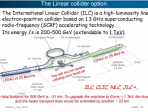 00:29:00
00:29:00
Future Accelerators for Astro-Particle Physics
One of the most remarkable results of astro-particle Physics has been the success of the Standard Model, recently culminated in the discovery of the Higgs particle (Ho). However, the Ho is observable only in few channels at the LHC, in the presence o....
More details | Watch now 00:35:00
00:35:00
The International Year of Light: Celebrating Fifty Years of Laser Revolution in Physics
The year 2015 has been named the International Year of Light, to mark milestones in the science of light which occurred 1000, 200, 150, 100 and 50 years go. I was a young student in physics in 1965, when the cosmic radiation background was discovered....
More details | Watch now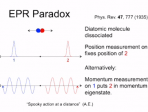 00:39:00
00:39:00
Light Quanta and Their Idiosyncrasies
Maxwell's electromagnetic theory (now 150 years old) seemed in its comprehensive way to be capable of answering all of the questions one might ever pose about the theory of light. But that spell was broken in 1900 by Planck's discovery that light bea....
More details | Watch now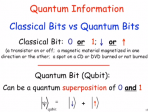 00:31:00
00:31:00
Quantum Information: a Scientific and Technological Revolution for the 21st Century
Two of the great scientific and technical revolutions of the 20th century were the discovery of the quantum nature of the submicroscopic world, and the advent of information science and engineering. Both of these have had a profound effect not only o....
More details | Watch now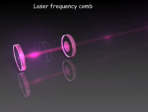 00:35:00
00:35:00
Science with Combs of Light
The spectrum of a frequency comb, commonly generated by a mode-locked femtosecond laser, consists of several hundred thousand precisely evenly spaced spectral lines. Such laser frequency combs have revolutionized the art of measuring the frequency of....
More details | Watch now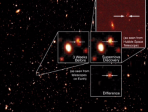 00:33:00
00:33:00
What We Learn When We Learn that the Universe is Accelerating
The 1998 discovery that the universe's expansion is accelerating was not only unexpected, but it also led to the postulation of a previously-unknown 'dark energy' forming almost three-quarters of the "stuff" of the universe. How was this discovery ma....
More details | Watch now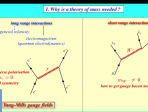 00:33:00
00:33:00
The Origin of Elementary Particle Masses
In the beginning of the 60s, the laws of classical general relativity, Einstein's generalisation of Newtonian gravity, and of quantum electrodynamics, the quantum version of Maxwell's electromagnetic theory, were known. These laws describe long range....
More details | Watch now 00:33:00
00:33:00
Nanoscopy – allowing molecules to be examined inside living cells
Eric Betzig shared the 2014 Chemistry Nobel prize with fellow American William E. Moerner and Romanian-German Stefan W. Hell for revolutionising science through the development of super-resolved fluorescence to exceed the accepted limits of tradition....
More details | Watch now 00:30:00
00:30:00
The Hunt May Be Up for the Carrier of the Diffuse Interstellar Bands and other stories
The development of radio telescopes has revolutionized our understanding of the molecular constitution of the interstellar medium ISM. A recent surprise that the element carbon had up its sleeve was the existence of C60, Buckminsterfullerene, the thi....
More details | Watch now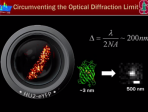 00:32:00
00:32:00
Fun with Light and Single Molecules
More than 25 years ago, single molecules were first detected optically, but how do we really detect a single molecule today, and what good is it? It is an amazing fact that you can even detect single molecules with your own eyes. When a new regime of....
More details | Watch now 00:32:00
00:32:00
Tickling Worms – Surprises from Basic Research
Research, at least my research, has never been linear. I have found that my lab and I often double back on problems after years of inactivity or go off in entirely new directions as dictated by the work and people's interests This lack of direction r....
More details | Watch now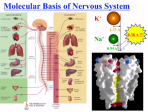 00:29:00
00:29:00
How to Model the Action of Complex Biological Systems on a Molecular Level
Despite the enormous advances in structural studies of biological systems we are frequently left without a clear structure function correlation and cannot fully describe how different systems actually work. This introduces a major challenge for compu....
More details | Watch now
